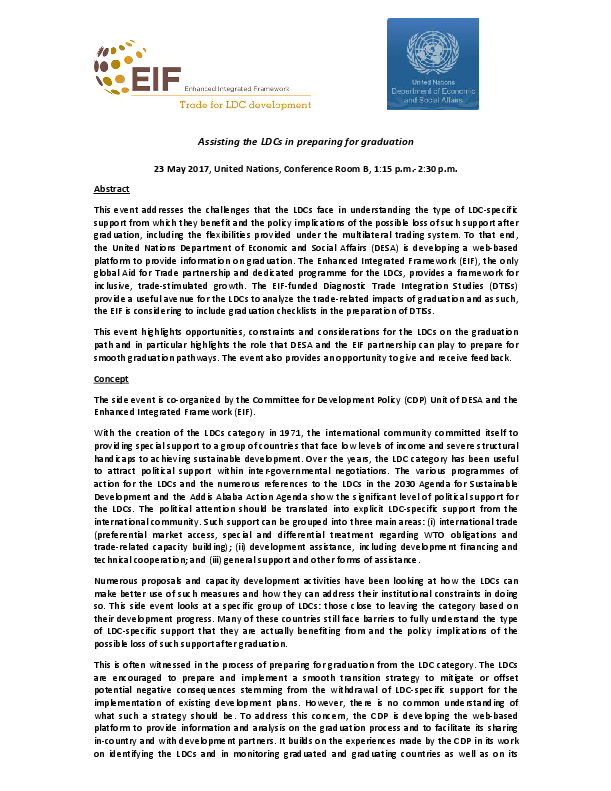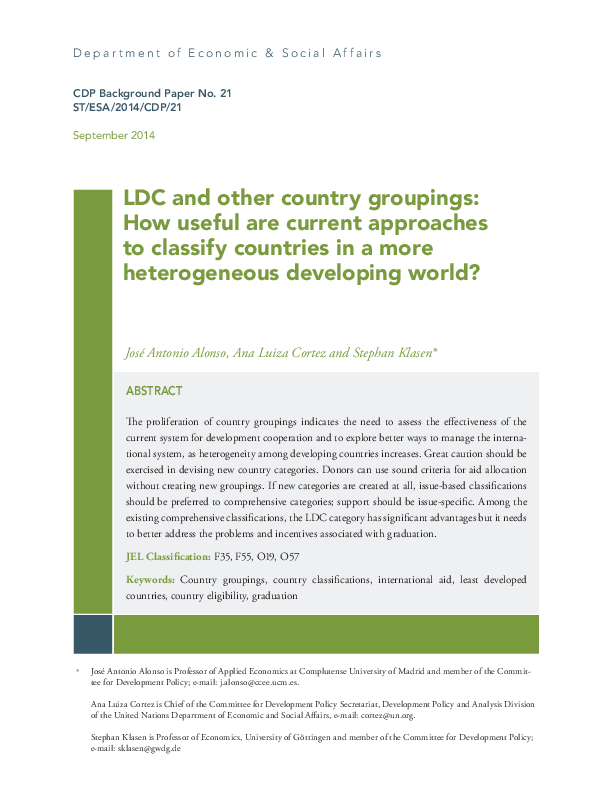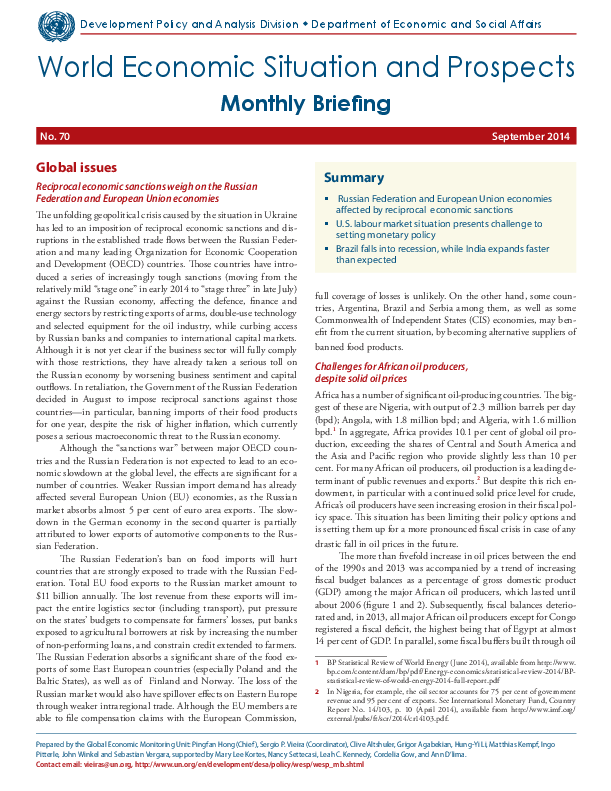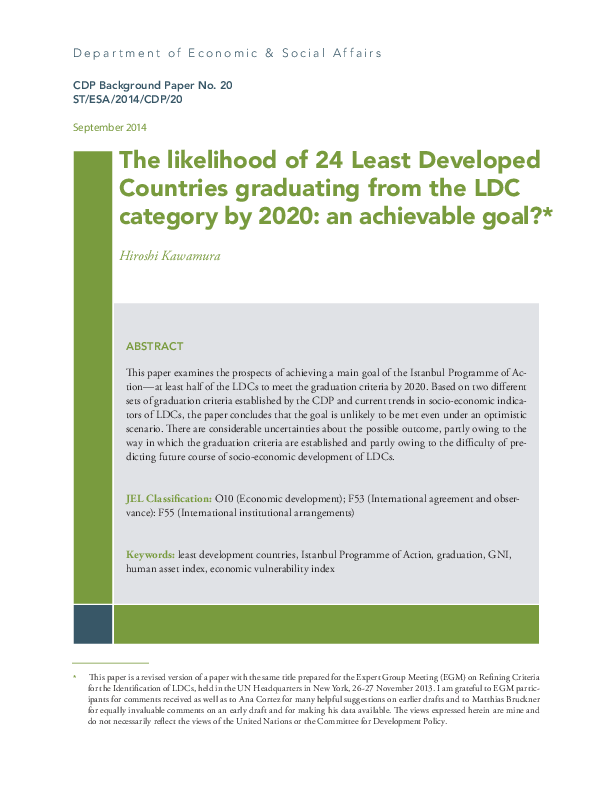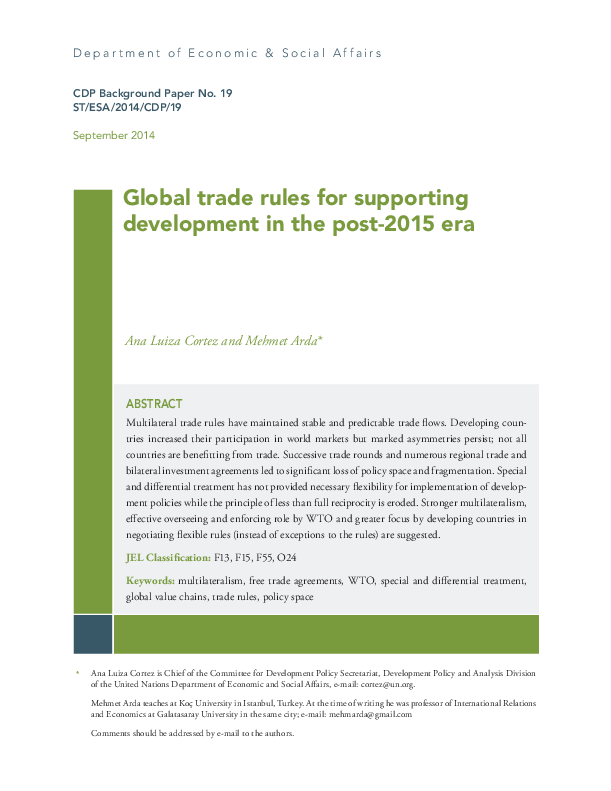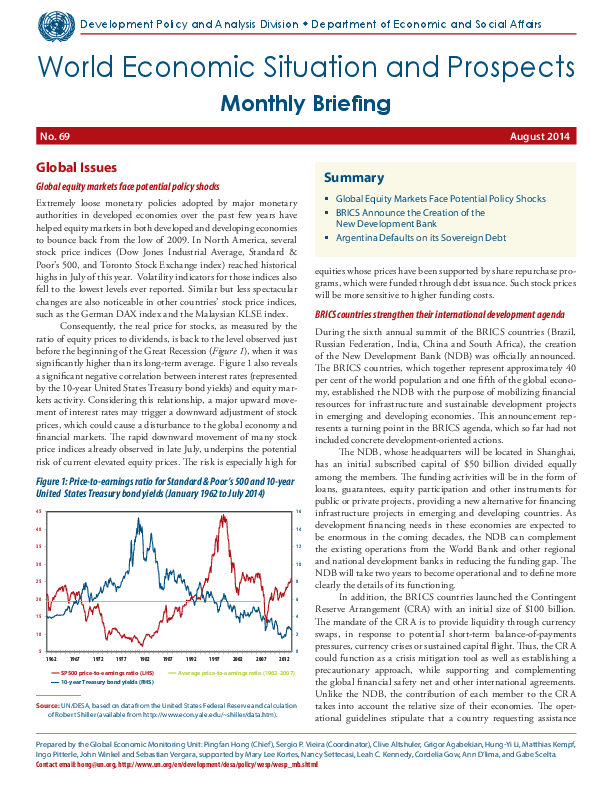Publications
Displaying 11 - 20 of 55
UN development agenda: Employment Imagining a world free from hunger: Ending hunger and malnutrition and ensuring food and nutrition security Governance and development Health in the post-2015 development agenda Towards freedom from fear and want: Human rights in the post-2015 agenda Addressing inequalities: The heart of the post-2015 agenda and the future we want for all Science, technology and innovation and…
 Welcome to the United Nations
Welcome to the United Nations
